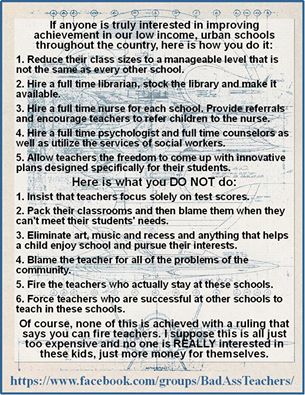I’ve said the below before but I’ll keep hammering on this particular nail. Nothing in this blog may be more important than the idea following:
Eduhonesty: Sensitive children may well accept buy into the idea that test scores show how capable they are in general. Especially when scores are consistently low – or are low on ”important” evaluations – they hurt. I am not saying students should never receive low scores. If you don’t know the math, you should not pass the test. What I am saying is that we need to make certain our testing instruments are appropriate. We should know our students. We should test our students on information they may reasonably be expected to know. In a classroom, new material should never be introduced during a test. If we must have unfamiliar material on a standardized test, we need to make certain that our students understand that the test is a state test. We do not expect them to be able to answer everything on the test. We only want to learn what they know so that we can figure out what we still need to teach them.
And frankly, if a test cannot tell us what our students need to be taught, we need to scrap the test.
It’s vital to keep in mind that some students will take a poor grade and decide to work harder. Others will give up. I am convinced that “failing” state tests year after year makes some students decide to exit the academic arena, a place where they feel they cannot compete.

